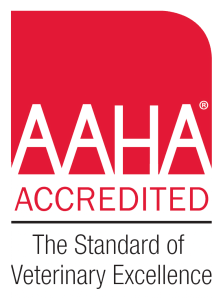If your dog frequents doggy daycare or has ever spent time in a boarding facility, chances are that you’ve heard the term before and have crossed your fingers that your dog would stay free from this condition!
Brook-Falls Veterinary Hospital has always strived to keep our clients up to date on the latest news in veterinary medicine. As I’m sure you’ve heard by now, multiple states across the country are reporting a “new outbreak” of canine respiratory illness.
It is important to remember that intermittent outbreaks of respiratory illnesses in populations (dogs and humans alike!) will happen from time to time. Dogs have an endemic respiratory ailment called Canine Infectious Respiratory Disease Complex which is composed of numerous bacteria and viruses. Keeping your dog up to date on both Bordetella and Canine Influenza Vaccines, as well as following protective measures, will keep your dog maximally protected against respiratory diseases.
Our current recommendations include taking preventative measures and avoiding contact with dogs of unknown vaccination status (such as at dog parks) and dogs that are displaying any signs of respiratory illness or malaise (coughing, sneezing, nasal discharge, lethargy, fever, etc). The Wisconsin Veterinary Medicine Association has not issued a formal announcement at this time.
See the following article "New Weird Canine Respiratory Pathogen? What Do We Know? | Worms & Germs Blog" as well as our full blog below for further information regarding the current situation and general canine respiratory disease.
How do dogs get kennel cough?
“Kennel cough” is the shorthand phrase for the much longer veterinary description, Canine Infectious Respiratory Disease Complex (CIRDC). This lengthy acronym refers to a combination of clinical signs resulting from infection with one or more (viruses and/or bacteria). Dogs usually pick up these pathogens when they come into contact with other dogs, in places such as the groomer, dog classes, the dog park, or during an overnight stay at a kennel. CIRDC is highly contagious and readily spreads in confined spaces with large groups of animals. Dogs usually develop CIRDC 2-3 days after exposure, but it can take up to 10 days for them to get sick.
What are the symptoms of kennel cough?
The clinical signs of CIRDC are often similar to those of a “cold” in people – you may first note your dog coughing and/or sneezing once in awhile. Occasionally, dogs will gag or at the end of their cough, and may bring up some clear fluid. Some dogs develop a runny, snotty nose and some eye discharge as well. Most dogs will experience a slight decrease in appetite as their body fights off the infection, and they will typically have lower energy levels than usual. A mild fever is possible as the dog’s immune system mounts a response to the disease.
What kind of tests will you need to run to diagnose kennel cough?
Most cases of CIRDC are diagnosed just based on clinical signs and physical exam – we may try to make your dog cough by pushing on his trachea (“windpipe”) gently, as this is a common indicator of kennel cough. If your dog has a significant fever (>104 degrees F), we may recommend bloodwork to assess the severity of the infection – we will want to see how well hydrated your dog is, and what his white blood cell count looks like. If your dog has particularly loud lung sounds, we may recommend x-rays to rule out serious lung disease.
What is the treatment for kennel cough?
Most dogs are able to fend off these infections on their own over 7-14 days – as many of these infections are viral, there is typically no indication for antibiotics in mild, early cases. Many dogs just need time and supportive care to get over the infection. If the cough seems persistent or worsens, or if your dog develops significant nasal discharge, a course of antibiotics for secondary bacterial infections may be prescribed.
Some dogs with mild fevers or decreased appetite benefit from fluids given subcutaneously (under the skin), to help with cooling and hydration. If your dog is coughing almost incessantly and has no signs of pneumonia, we may prescribe a cough suppressant to give him (and you!) some relief.
In rare cases, CIRDC can progress to more severe infection, such as pneumonia – these dogs will require more intensive care and likely hospitalization. They may need intravenous fluids and antibiotics to get better, and will require more frequent monitoring. However, the majority of dogs with CIRDC recover with sufficient time and a little TLC.
What would be the signs of a more serious infection that needs additional veterinary attention?
Signs to watch for that should prompt a call or visit to the vet include:
– Increased respiratory rate or effort, or difficulty breathing
– Refusal to eat or drink at all
– Significant increase in lethargy / depression – refusal to move about the home
– Significant worsening of clinical signs – increased severity of cough, high fever (>104 degrees F)
These symptoms may be an indication that your dog needs more intensive care.
How can I make my dog comfortable at home while he’s getting over his kennel cough?
Dogs with kennel cough may not feel much like eating or drinking. Try to always have clean water available, and offer tasty canned food to tempt their appetite – warming the food can also be helpful, as it helps release some of the aromas and makes the food more appetizing. If your dog has a lot of nasal and ocular secretions, you can use a warm, damp washcloth to clear his face once in a while, to provide him some relief. Steam therapy is also helpful for some dogs with kennel cough. Bring your dog into the bathroom while you run a hot shower – the steam can help break up some of the respiratory secretions and may make your dog feel a little better.
It is important to allow your dog to rest while he’s getting over kennel cough. You can let him out to go potty, but avoid long walks or rigorous play and exercise – this would be the equivalent of you going to the gym while you’re fighting off a nasty head cold! When you take him out, avoid using a neck collar, as this can put pressure on the trachea and elicit more coughing.
Do NOT administer any human medications to your dog to help him feel better. Only give medications prescribed by your veterinarian. Many of the medications that humans take while sick can be very harmful to dogs, and could lead to secondary complications.
But my dog got the kennel cough vaccine! How could he get sick?
We are able to vaccinate against several of the common respiratory pathogens seen in dogs – however, there are some viruses and/or bacteria that cause respiratory disease for which we do not have vaccines. Additionally, some of the vaccines we use are great at reducing the severity of respiratory disease in dogs, but do not necessarily prevent the disease from occurring altogether. We still recommend these vaccines to minimize clinical signs, but some dogs may still develop mild “cold” symptoms after exposure to these pathogens. Ultimately, vaccinating your dog will reduce the risk of contracting some respiratory pathogens, and will make certain diseases less severe.
Can my dog still go to doggy daycare or the groomer while he’s getting better?
You should not allow your dog to interact with other dogs for several weeks after infection. CIRDC is highly contagious, and he could easily spread his illness to other, susceptible dogs. Additionally, while your dog is getting better, his immune system will be working hard – it is not ideal to expose him to other potential pathogens while he’s still a bit “run down” from his original sickness. Avoid allowing your dog to “socialize” until he is fully better, both for the sake of him and the dogs around him! Your dog should be cough free & finished with medications before returning to group activities. If they were not put on any medications, they should be cough free and they should have finished a 2-week quarantine from group activities. This is to decrease the chance of getting their friends sick too.
What if my dog doesn’t get better?
A mild cough may persist for a few weeks as the inflammation in the airways goes down – as long as your dog is otherwise improving (e.g., less nasal / ocular discharge, cough is decreasing in severity / frequency, improved appetite and energy levels), this is of minimal concern.
In some cases, dogs with a cough are treated as though they have CIRDC, but they do not seem to improve, even with time and several types of antibiotics. These dogs likely have a more complicated or unusual infection going on, and may need additional testing, such as a respiratory panel or an airway wash. A wash involves collecting a sample of the microorganisms in your dogs trachea and lungs, to see if there are specific therapies needed to clear the infection. Examination of the dog’s airways with a flexible endoscope (bronchoscopy) may also be indicated in some cases. Some dogs with coughs that are refractory to treatment may need to be referred to a specialist for more advanced diagnostics and treatment modalities.
Could my dog’s kennel cough actually be COVID-19?
Though there have been a few reported cases of COVID-19 in dogs in the United States, the likelihood of this being the case for your pet is very low unless someone in your household has had COVID-19. While there is still extensive research being conducted in this area, there has been no documented evidence of dog-to-dog transmission of so it is highly unlikely that your dog would have gotten COVID-19 from another dog at the dog park or doggy daycare. The dogs that have tested positive for COVID-19 have actually been exposed to people infected with the virus. Moreover, these dogs did not seem to be able to transmit the virus back to people. If you bring your dog in for a cough, we may ask if anyone in the household has been sick recently, to assess the likelihood of this scenario.
How can I prevent my dog from getting kennel cough?
Ultimately, the best way to keep your dog safe is to get him vaccinated! We offer the Bordetella and canine influenza vaccines – the canine distemper vaccine series also offers protection against many common respiratory pathogens.
Practice good hygiene and keep your dog’s immune system healthy by feeding a high-quality diet and incorporating regular exercise into your daily routine.
Look into the vaccine requirements and cleaning policies of the facilities where you plan to or take him for doggy daycare. If they have no vaccine standards, you may want to reconsider, as the risk for infection may be higher. Our has the same high standards as our hospital and requires all animals to be up to date on all vaccines, including Bordetella and canine influenza, for example.
Finally, as always, reach out to your veterinarian for advice and questions about kennel cough and how you can do your best to keep your pet healthy and happy!
About Brook-Falls
Brook-Falls Veterinary Hospital and Exotic Care is dedicated to providing quality care to all companion pets and exotic animals. Brook-Falls is a Menomonee Falls, WI-based full-service veterinary hospital with an extensive range of comprehensive medical, dental, diagnostic, and surgical services to meet the varying needs of all patients. Brook-Falls Veterinary also offers informational and educational media and seminars for pet owners by way of blogs, digital TV series (Expert Veterinary Television), e-books, whitepapers, infographics, and more.
For more information, contact Brook-Falls Veterinary Hospital & Exotic Care Inc.


